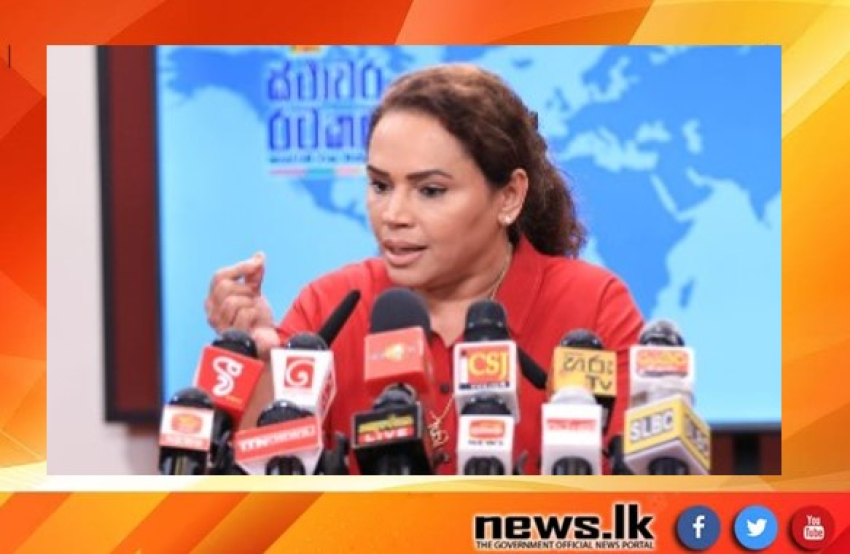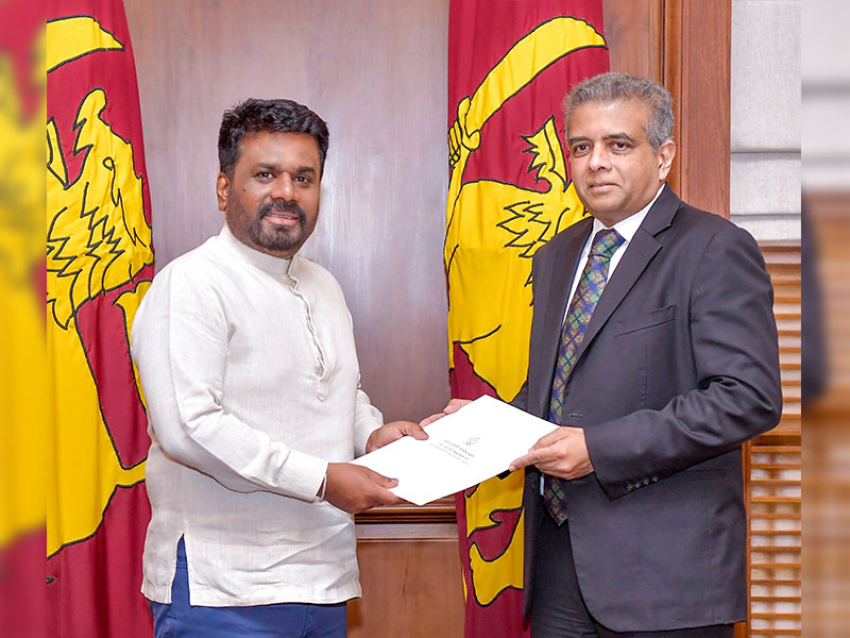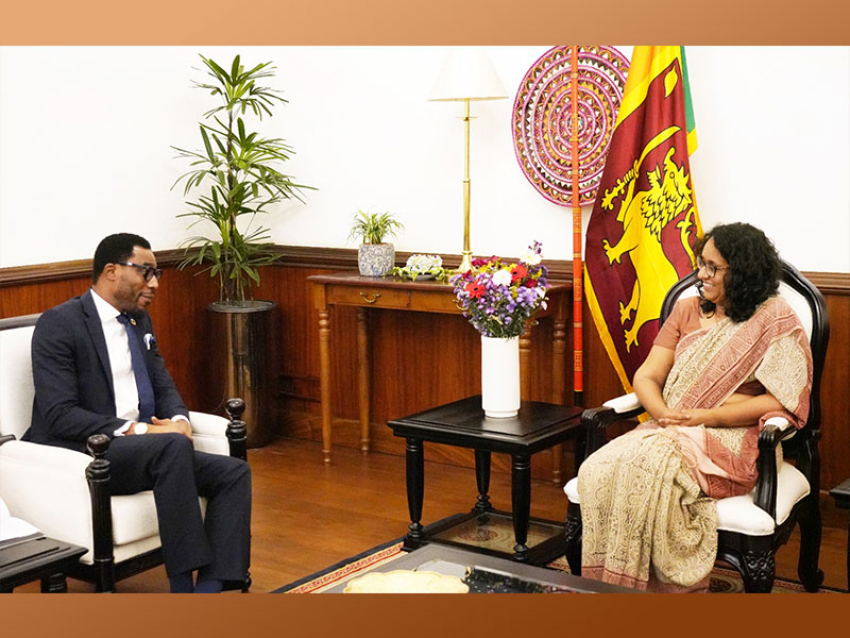State Minister of Tourism, Mrs. Diana Gamage, highlighted that during the first seven months of this year, Sri Lanka welcomed a significant influx of 763,000 tourists, contributing to a significant income of approximately US $800 million.
She further emphasized the success of President Ranil Wickremesinghe's program aimed at strengthening the national economy through the growth of the tourism industry. This accomplishment has played a crucial role in bolstering Sri Lanka's foreign reserves.
State Minister Mrs. Diana Gamage shared her perspective during a Press Briefing at the Presidential Media Centre (PMC) today (30) under the theme 'Collective Path to a Stable Country.'
Mrs. Gamage emphasized the importance introducing new approaches and adopting innovative strategies to enhance the tourism industry. She emphasized the necessity of developing vibrant and active cities to attract tourists, stating that visitors do not seek out lifeless destinations or dead cities.
The State Minister of Tourism Mrs. Diana Gamage also said:
Last year, the tourism business had fallen into a very sad situation. Tourists did not make Sri Lanka a tourist destination due to the economic crisis and struggle in the country. Various countries had banned Sri Lanka from visiting. But with the arrival of President Ranil Wickremesinghe, the era of queuing in the country ended. The economy is slowly building up. At the same time, a favourable situation was created for the tourism industry. In the first seven months of this year, Sri Lanka witnessed a significant increase in tourist arrivals, with 763,000 tourists visiting the country. This surge has contributed to earning over US$ 800 million, representing a remarkable growth rate of 205% compared to the previous year. The resurgence of the tourism sector has played a vital role in strengthening Sri Lanka's economy and increasing its foreign reserves.
As the State Ministry of Tourism, Sri Lanka is undertaking a new program to boost tourism, and one significant step in this regard was hosting the final round of the Miss World pageant recently. This prestigious event saw contestants from 30 countries visiting Sri Lanka, contributing to the promotion of the country's tourism industry.
In line with its efforts to boost tourism, the State Ministry of Tourism in Sri Lanka has undertaken a new program to promote the country as an attractive tourist destination. Recently, Sri Lanka hosted the final round of the Miss Tourism World pageant, with contestants from 30 countries visiting and exploring the beauty of the island. This event has significantly contributed to promoting Sri Lanka's tourism industry.
Furthermore, a significant milestone is set to take place at the end of this year, as Sri Lanka plans to host the final competition of the World Travel Awards (WTA) in December. This prestigious event is expected to see the participation of 117 countries, further elevating Sri Lanka's status as a global tourism destination. The President has been apprised of these developments, reflecting the government's commitment to showcasing Sri Lanka's potential to the world.
Additionally, historical data shows that a considerable number of tourists have previously arrived in Sri Lanka from countries such as England, Russia, Germany, and France. These key markets continue to show interest in visiting Sri Lanka, further strengthening the country's tourism industry.
Indeed, while the State Ministry of Tourism plays a crucial role in promoting and facilitating tourism, the majority of the tourism industry's success relies on private institutions and individuals. The actions of even a single person can have a significant impact on the reputation of Sri Lanka as a tourist destination. Hence, there is a vital need for regulations to ensure the smooth and positive experience of tourists. Regulation of the tourism business is crucial to maintain standards and ensure a positive experience for tourists. A single negative incident or inconvenience to a tourist can have far-reaching consequences on the entire industry. Therefore, a robust regulatory framework is necessary to safeguard the interests of both tourists and the tourism sector.
In this regard, the government has taken steps to implement a system that evaluates the quality of accommodations, such as Air B&B, Homestays, provided to tourists. By maintaining high-quality facilities and services, Sri Lanka can attract more tourists and enhance the overall tourism experience.
Setting ambitious targets, such as achieving tourism revenue levels similar to that of 2018 by the end of this year, shows the government's commitment to rejuvenating the tourism industry. It highlights the determination to restore Sri Lanka's appeal as a thriving and welcoming tourist destination in the global market.
It is essential to clarify that when discussing the cultivation of hemp (Cannabis), the focus is not on its use as an intoxicant. Cannabis, indeed, is classified as a drug, but it also has significant potential for medical and industrial purposes. In fact, there are 22 varieties of cannabis in Sri Lanka and numerous numbers of medicinal products that can be derived from hemp, presenting a significant opportunity for Sri Lanka to capitalize on its cultivation and exports. Hemp cultivation is gaining prominence globally, and Sri Lanka has the potential to become a leader in this industry. There are lucrative investment prospects in producing medicines from hemp, which can yield substantial economic benefits for the country. A ten-acre hemp plantation alone has the potential to generate around US$ 200 million.
However, it is essential to address the misconceptions and misunderstandings surrounding hemp farming in Sri Lanka. Some negative perceptions arise from the misuse of social media and the conflation of hemp with illicit drugs. It is crucial to educate the public about the legitimate and profitable aspects of hemp cultivation, emphasizing its vast economic potential in various industries.
By promoting responsible and informed discussions about cannabis, focusing on its various uses beyond intoxication, and implementing appropriate regulations, Sri Lanka can tap into the enormous economic opportunities offered by this multi-billion dollar industry.
To boost the tourism industry, implementing a night economy system is vital. Tourists seek destinations that provide them with the freedom to enjoy life to the fullest. Closing tourist destinations early, such as at 10 pm, would discourage tourists from visiting. To attract tourists, it is essential to create vibrant and lively environments, not "dead cities" (areas with limited nightlife). In order to attract more tourists, it is crucial to extend the operating hours of tourist destinations, allowing visitors to have a more enjoyable experience. This may involve keeping certain places open later into the night, providing various entertainment options, and facilitating activities that appeal to tourists.
Furthermore, establishing direct flight services with international airlines, such as Chinese and Italian airlines, will enhance accessibility and convenience for tourists. These partnerships can help bring in more visitors and contribute to the growth of Sri Lanka's tourism sector.
By implementing these promotional programs and initiatives, the State Ministry aims to strengthen Sri Lanka's economy through a thriving and vibrant tourism industry. Emphasizing a night economy, extending beach stays, and improving transportation connections will undoubtedly make Sri Lanka a more attractive and appealing destination for tourists from around the world. A thriving tourism sector can bring in substantial revenue, create job opportunities, and contribute significantly to the nation's economic growth.
Responding to a query from a journalist the State Minister said that it is indeed concerning that the distorted singing of the national anthem has occurred in a recent tournament. The national anthem holds great significance as a symbol of pride for the country and its people. It is crucial to uphold its dignity and respect. The issue of insulting the national anthem should not be taken lightly, and it deserves attention from all political groups, including the opposition. Bringing back defamation laws and ensuring proper legal measures to address such incidents can play a vital role in discouraging such disrespectful behaviour. Political leaders and groups should take a firm stance against any actions that undermine the national anthem's sanctity and work collectively to promote respect for national symbols and values. Upholding national pride and unity is essential for the progress and prosperity of the country.
President’s Media Division



















